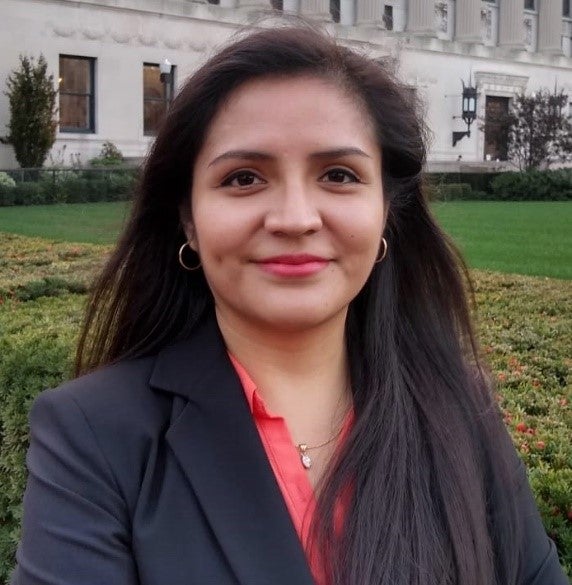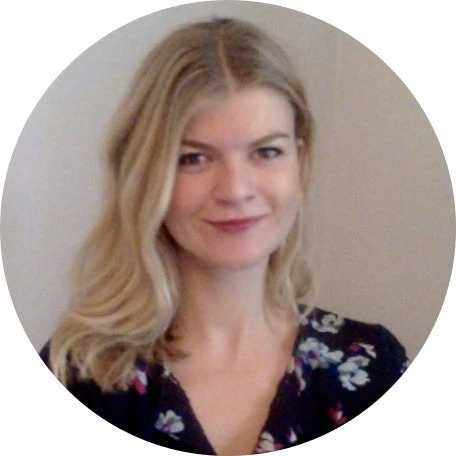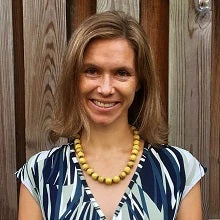 This blog highlight the experiences of two fellows from last year’s World Bank Robert S. McNamara Fellowships Program. Art: Mariana Lozzi / World Bank
This blog highlight the experiences of two fellows from last year’s World Bank Robert S. McNamara Fellowships Program. Art: Mariana Lozzi / World Bank
This blog highlight the experiences* of two fellows from last year’s World Bank Robert S. McNamara Fellowships Program.
The Fellowships Program matches aspiring development economics researchers from developing countries with World Bank research economists, creating opportunities for the fellows to take part in rigorous, policy-focused research in the World Bank’s research hub in the Development Economics Vice Presidency (DEC).
The World Bank hosts fellows in Washington, D.C., from September to June each year, offering them an opportunity to work under the supervision of seasoned researchers in the World Bank’s Development Impact Evaluation (DIME) and Development Research Group departments.
By working with World Bank DEC researchers and their external academic collaborators from top universities, fellows learn current research standards, acquire new econometric skills and network with leading researchers in their field . They participate in rigorous research tackling critical challenges in the developing world. They also participate in a comprehensive training program to build technical skills and familiarize themselves with the tools required to succeed in the critically important field of development research. Below are the experiences of two of them.
Abhishek Anand
| Through working as a civil servant with the Indian government, I have been fortunate to experience policy design and implementation at the highest levels of power. However, this experience also made me realize that civil servants must work across diverse areas and foster their technical and analytical skills to stay relevant and effective. When I was offered the Robert S. McNamara fellowship, I was delighted at the prospect of participating in rigorous policy-relevant research with the World Bank’s Bureaucracy Lab. One of the projects I worked on aimed to strengthen civil servants' analytical capability in developing countries. We developed a curriculum for Ghanaian civil servants to enhance their research and analytical capabilities, promote evidence-based policymaking, and increase their capacity to apply and disseminate research results. We conducted 13 virtual sessions for a diverse set of Ghanaian civil servants covering topics including survey design, data visualization, communicating research findings, data management, and digitization. |
 |
"Interacting with such a diverse set of bureaucrats and learning about the challenges they face in their day-to-day work was an incredibly enriching experience for me."
— Abhishek Anand
"The fellowship offers many intangible benefits. For example, I learned from researchers across teams and projects. I also attended lectures and technical courses, which added to my technical competence."
Paula Castillo Vera
| I joined the Finance & Private Sector Development team, where I dedicated most of my time working on two projects related to financial inclusion in Peru, my home country. The first project analyzed whether access to credit impacts the development of small and medium-sized enterprises (SMEs). In particular, the project studies a sample of SMEs that applied for a bank loan and were screened using a novel psychometric credit scoring tool. While SMEs with psychometric scores above a threshold were automatically offered a loan, SMEs with scores below the threshold were also screened by a loan officer, who decided whether to offer them a loan. Using administrative data from the bank and the National Superintendence of Tax Administration, the study uses a regression discontinuity design to evaluate the impact of credit access. I was also involved in a project that aims to understand if there is gender and racial discrimination in the credit market in Peru. This study again analyzes the psychometric credit scoring tool but examines if this tool helps reduce the gender and racial gap in credit access. |
 |
"My experience as a Robert S McNamara fellow granted me the opportunity to improve my research and analytical skills, allowed me to communicate with different people of diverse backgrounds and gave me the chance to work with incredible supervisors who motivated and guided me. It was one of the best experiences I have had in my professional career."
— Paula Castillo Vera
"For both projects, I was involved in many stages, which gave me the opportunity to develop skills that will undoubtedly contribute to my professional growth. I helped the team obtain data that are not publicly available, which required establishing links with government authorities as well as following stringent data protection rules. I also examined data, reviewed literature, and applied regression discontinuity design. Most importantly, I learned the importance of conducting research to inform and design evidence-based policies."
In Peru, SMEs account for over 99% of formal businesses and generate more than 90% of formal jobs. Crucially, almost 30% of SMEs are women-owned. As such, the projects I contributed to will yield relevant insights for policies aimed at improving SME credit access and financial inclusion, especially for women-owned businesses.
*Original fellow submissions have been edited for publication.



Join the Conversation